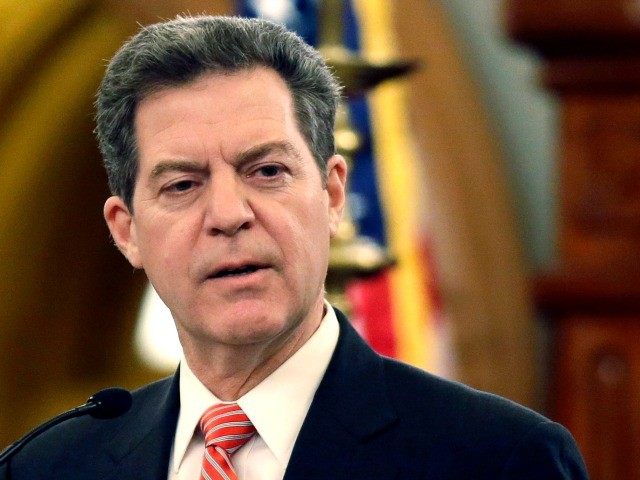In an executive order, Kansas Gov. Sam Brownback (R) has rescinded a prior order that protects state workers based on their sexual orientation and gender identity.
WIBW.com reports that on Tuesday, Brownback signed an executive order that rescinded one signed in 2007 by then-Gov. Kathleen Sebelius (D) that gave special protected status for lesbian, gay, bisexual, and transgender (LGBT) state workers. The governor issued a separate order that encourages jobs and job mentoring for veterans and the disabled.
Brownback said his order intends to guarantee all Kansans the same civil rights without creating special protected classes of people:
Executive Order 15-02 reaffirms the commitment of the State of Kansas to employment practices which do not discriminate based on race, color, gender, religion, national origin, ancestry or age. It further establishes that state entities will implement employment management practices for veterans and disabled individuals that include outreach, hiring, support, mentoring, development, rewards and recognition for achievement.
“Any such expansion of ‘protected classes’ should be done by the legislature and not through unilateral action,” Brownback said. “The order also reaffirms our commitment to hiring, mentoring and recognizing veterans and individuals with disabilities.”
According to Kansascity.com, Tom Witt, executive director of LGBT rights group Equality Kansas, said, “This action by the governor is an outrage.”
“Gay, lesbian, and transgender state employees across Kansas have trusted they would be safe from discrimination and harassment in their workplace but Sam Brownback has, by erasing their job protections, declared ‘open season’ on every one of them,” Witt said.
But Rep. John Rubin (R), a former federal judge, agreed with Brownback that the issue should be up to the state legislature to decide.
“Until sexual orientation is either added in Kansas as a protected class under our law or added federally, which it isn’t now … I think that’s the Legislature’s prerogative,” Rubin said. “Whether they should be a protected class is a separate question. … But it isn’t a protected class until we say it is.”

COMMENTS
Please let us know if you're having issues with commenting.